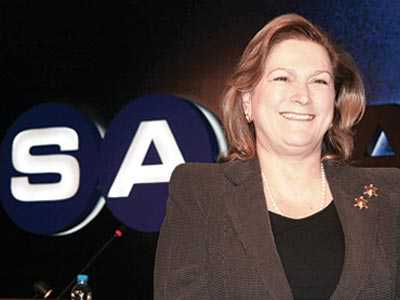Calls To Halt EU Live Exports To Turkey
EU & TURKEY – Investigations into live animal transport from the EU to Turkey have revealed a crisis at the border as exports to Turkey in 2011 rocketed to over one million animals. Animal welfare organisations are now calling for EU exports to Turkey to be suspended.
[Compassion in World Farming International]
Three European animal welfare organisations, Compassion in World Farming, Eyes on Animals and Animal Welfare Foundation, carried out three investigations in 2011 on the border between the EU and Turkey.
What they found confirmed their findings from a similar investigation in October 2010. Out of 158 vehicles checked at the border, an alarming 67 per cent broke the EU’s regulations on the welfare of animals during transport.
With this in mind they are pushing for EU exports to Turkey to be suspended.
Speaking at a press briefing today Andrea Gavinelli from the European Commission (DG SANCO) said that it was not possible for the Commission to impose this unilaterally.
Responding to a question on what the Commission is doing, he said that the Commission will try and meet with member state authorities and gather all the players around the table soon.
He added that this issue had already been raised in the standing committee and that the meeting with member states would take place over the next month, no later than March.
What are the issues?
The problems are compounded by delays often lasting hours, sometimes even days at the border, caused by defective paperwork and strict import checks. In one case, two trucks carrying Greek sheep were stuck at the border for four days. In all, 14 of the sheep died as a result of this prolonged delay.
Peter Stevenson, Compassion in World Farming’s Chief Policy Advisor, says: “This inhumane trade has grown very quickly and, with over one million sheep and cattle exported to Turkey in the last year, is now one of the world’s largest live export trades. Packed into overcrowded trucks, the animals suffer terribly during the long journeys and the protracted delays at the border. They become desperate with thirst and so hungry that some even eat their own filthy bedding. The EU should halt this callous trade in living creatures.”
The sheep and cattle, including youngstock, come from a number of EU Member States including Hungary, Bulgaria, Austria, Greece, Lithuania, Latvia and Estonia. The trucks carrying the animals are from these countries but also from the Netherlands, Germany, Poland, Romania and Croatia.
Once the animals make it through the border, their ordeal is not over. Many face a further gruelling journey through Turkey to as far away as Erzurum in the east of the country, around 1,500 kilometres from the border.
Some of the major problems are:
Severe overcrowding; insufficient headroom;
inadequate ventilation (in the summer temperatures as high as 58°C were recorded inside the trucks);
and lack of water.
Most of the animals are being sent for slaughter though some of the cattle are going for fattening or breeding. Slaughter conditions in Turkey are often inhumane. Animals are hoisted up by their legs to the killing line where their throats are cut while they are fully conscious and they are left to bleed to death. Suspending conscious animals upside down by their legs is in breach of the international standards of the OIE – the World Organisation for Animal Health – of which Turkey is a member.
It is ethically unacceptable for the EU to send animals to a country which regularly ignores international standards on welfare at slaughter.
Lesley Moffat, Inspector and Director of Eyes on Animals, says: “Should we not be able to stop this inhumane trade, then we call for the authorities and traders to liaise so that a stall at the border can be built immediately. At the moment, animals blocked for days at the border, or animals arriving with broken legs or other painful injuries, cannot be unloaded.
“They are simply left on board, facing possible trampling, dehydration and even death. After inspecting animal transports for 10 years, the cases here are the saddest and most frustrating I have seen.”
After each investigation, the charities wrote to the main countries involved in the trade but saw no improvement in the dire situation at the border in 2011, as the numbers of animals crossing it in trucks continues to rise.
The three organisations are calling on the European Commission to:
suspend the export of live animals to Turkey in order to prevent further suffering by EU animals
commence infringement proceedings against Bulgaria and Hungary for their systematic failure to enforce EU law on the protection of animals during transport
liaise with the authorities of Turkey and the EU Member States involved in the trade to find ways of bringing the lengthy delays at the border to an end.
Iris Baumgärtner, Animal Welfare Foundation´s project manager, says: “We witnessed bulls with broken legs and dying sheep in vehicles that had just passed the Turkish veterinary inspection and were cleared to be transported to their destination in Turkey. It seems Turkey cannot guarantee the most simple welfare standards for animals at its border: feed, water and rest and emergency killing or euthanasia for injured and sick animals.”
TheCattleSite News Desk
via Calls To Halt EU Live Exports To Turkey.




